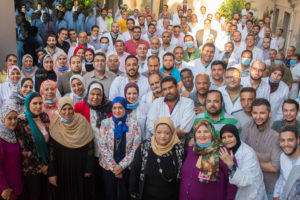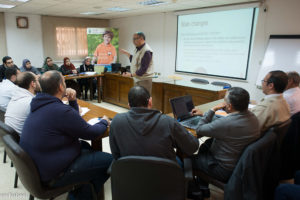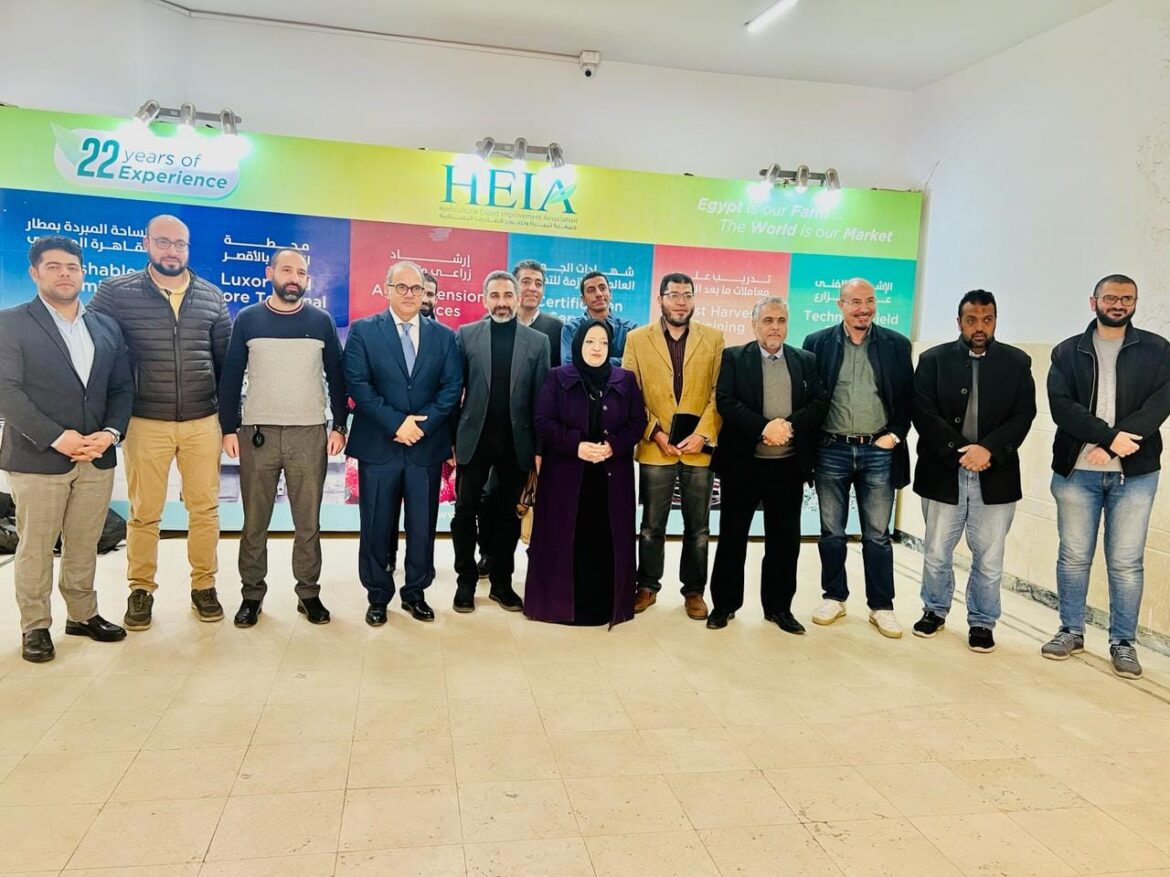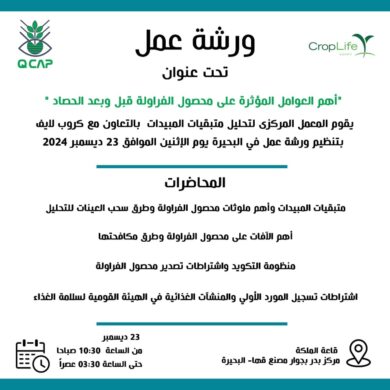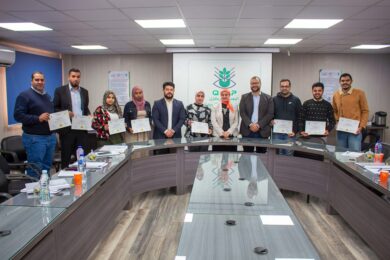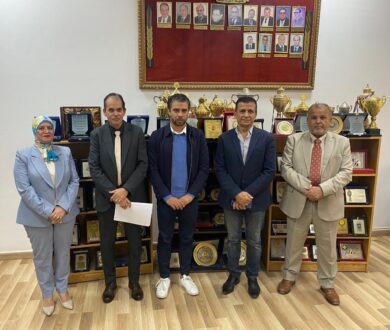Within the framework of research agencies playing an advisory role and supporting workers in the agricultural sector, Prof. Dr. Hind Abdullah, Director of the Central Laboratory for Analysis of Pesticide Residues and Heavy Metals in Food (QCAP), announced that the laboratory has completed organizing a workshop in cooperation with the Horticultural Export Development and Development Association (Haya). ) under the title “The Impact of Chemical and Microbial Pollutants on Horticultural Crops Before and After Harvest” on Thursday, February 15, 2024, for members of the association who are producers and exporters of horticultural crops. The workshop included an overview of the laboratory and its role in increasing agricultural exports and defining the maximum limits for permissible pesticide residues. On agricultural products, the impact of contamination with heavy metals and microbial pollutants on agricultural exports, the requirements of European and Arab market specifications for conducting chemical and microbial tests, as well as the methods and techniques for drawing samples, which helps in drawing samples in a representative manner and for the sample to arrive in a good manner to the laboratory, which contributes to the laboratory playing its role in producing the analysis results. A representative of the farm or shipment from which the samples were taken. A lecture was also given on food contact materials and the requirements of regulatory authorities in conducting the necessary tests for various packaging materials and food contact materials. More than 25 companies from producers and exporters of citrus crops, grapes, strawberries, medicinal and aromatic plants, cut flowers, and engineers participated in the audience. Quality and production on farms or sorting and packing stations in 6th of October City at the headquarters of the Haya Association.
During the workshop, inquiries from company representatives were answered and the most important reasons for the presence of pesticide residues in the product, the maximum permissible limits on crops, and how to help produce a crop that conforms to international specifications and has acceptable limits of pesticide residues. This comes within the framework of the laboratory’s role of guidance with producers and exporters of agricultural crops. Which has the greatest impact on reducing pollutants and pesticide residues in products intended for trade in the local market or for export.
Haya Association is considered one of the largest civil society associations that was established in 1996 with the aim of supporting the horticultural industry and increasing Egyptian agricultural exports. It includes most of those working in the field of production and export of horticultural crops in Egypt.
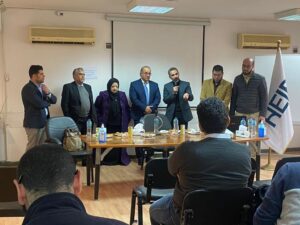
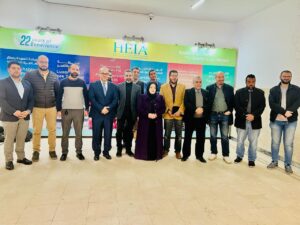
Related items
Workshop in Beheira
Invitation to all laboratory clients from strawberry producers and exporters in Beheira Th
(Q-CAP) has completed the organization of the training program (Quality Management System in Testing Laboratories according to ISO/IEC 17025:2017)
The Central Laboratory for Pesticide Residues (Q-CAP) has completed the organization of th
The Central Laboratory for Pesticide Residues and the Suez Canal Agriculture sign a memorandum of understanding for cooperation between the two parties
The Central Laboratory for Pesticide Residues and the Suez Canal Agriculture sign a memora

